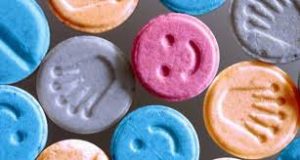Should Drug Users be allowed to test what is in their drugs at music festivals in Australia?
Just over the past few days a 26-year-old man from Albury became unconscious and later died of a drug overdose after attending one of Australia’s largest dance music events – Defqon. 1. 18 others who attended the festival were hospitalised.
Last February a 19-year-old man died in hospital after a drug overdose at the “State of Trance” music festival in Sydney, Australia. Three months earlier, again in Sydney, a 19-year-old girl, Georgina Bartter died from a suspected ecstasy overdose at the Harbourlife festival.
A total of 15 people died at music festivals around the world in 2014. If these tragedies are any indication, festival deaths are on the rise.
Music festivals are big business. The Association for Electronic Music says electronic music alone is a $6.2 billion global industry. Music festivals can attract anywhere from 10,000 and upwards of 100,000 party goers at one single event.
Whether we like it or not, people are going to do drugs at music festivals. Doing drugs at major music festivals is as common as BO and fireworks. Festival goers need a little pick-me-up to help keep them partying over the days long events. However, the frightening truth is that most people have no clue as to what they are taking.
Although many festival promoters try to ban drugs at music festivals, bring in drug-sniffing dogs and require fans to watch anti-drug PSA, there is no way they can stop attendees from bringing in drugs with the mass of people that music festival events attract. It is not cost effective and it is virtually impossible to search every camper and every piece of his or her gear.
With thousands of people taking illicit drugs at music festivals should party goers be allowed to test what is in their drugs?
“Georgina Bartter’s and other’s drug related deaths could have been avoided if party goers were allowed to test their drugs before the festivals,” said Greens NSW MP David Shoebridge. “He said rather than dogs inspiring people holding drugs to dispose of the substances, they caused more harm by making drug holders consume bulk quantities at once to avoid detection, thus putting them in danger of a drug overdose.” He also advised that “less than one per cent of sniffer dog drug detections resulted in successful prosecutions.”
Drug testing at music festivals is not to see whether party goers are high; it is to give them reliable information about what they are ingesting. By testing drugs at music festivals, festival goers can make sure the drugs they are about to take are what they think they are and are not tainted with a toxic ingredient.
For example, most of the MDMA being passed around at music festivals that was tested was cathinone or bath salts. Cocaine and amphetamines are being cut more and more with cutting agents such as; caffeine, levamisole, phenacetine and local anesthetics. Ecstasy may be the least likely to be cut with other substances, but its potency is constantly increasing so much that someone who may be used to taking a few ecstasy tablets are now getting a lot more than they are used to.
There is a fine line between acknowledging drug use at festivals and condoning it. Music festival promoters and the legal industry are at odds as to whether drug testing will promote more drug use. In the meantime, renegade drug testing vigilantes and other organisations involved in harm reduction and drug testing are trying to do whatever it takes to cut through the red tape and give people the information they need to make better decisions about the risks they are taking.
Drug testing is just one part of the harm reduction efforts being made by festival promoters and other organisations. There is other safety information they share at events as well such as the importance of staying hydrated, supplying condoms and which drugs mix well and what others do not.
Whether it is educating people about the perils of doing drugs at music festivals or helping them make better informed decisions if they choose to do so; in the end everyone wants festival goers to be safe and have a good time. No one wants to see anyone lose his or her life when all they wanted to do was have some fun.







